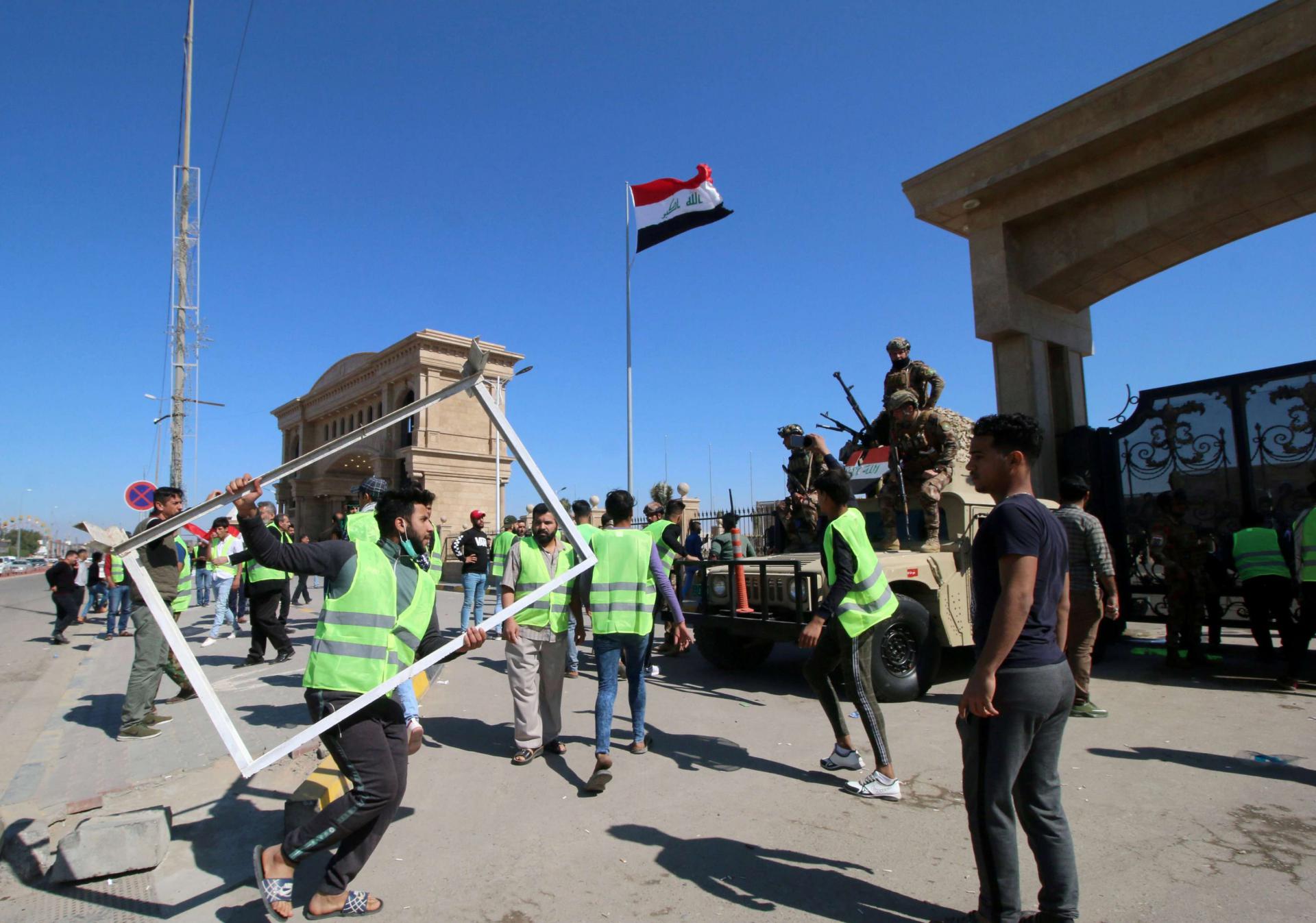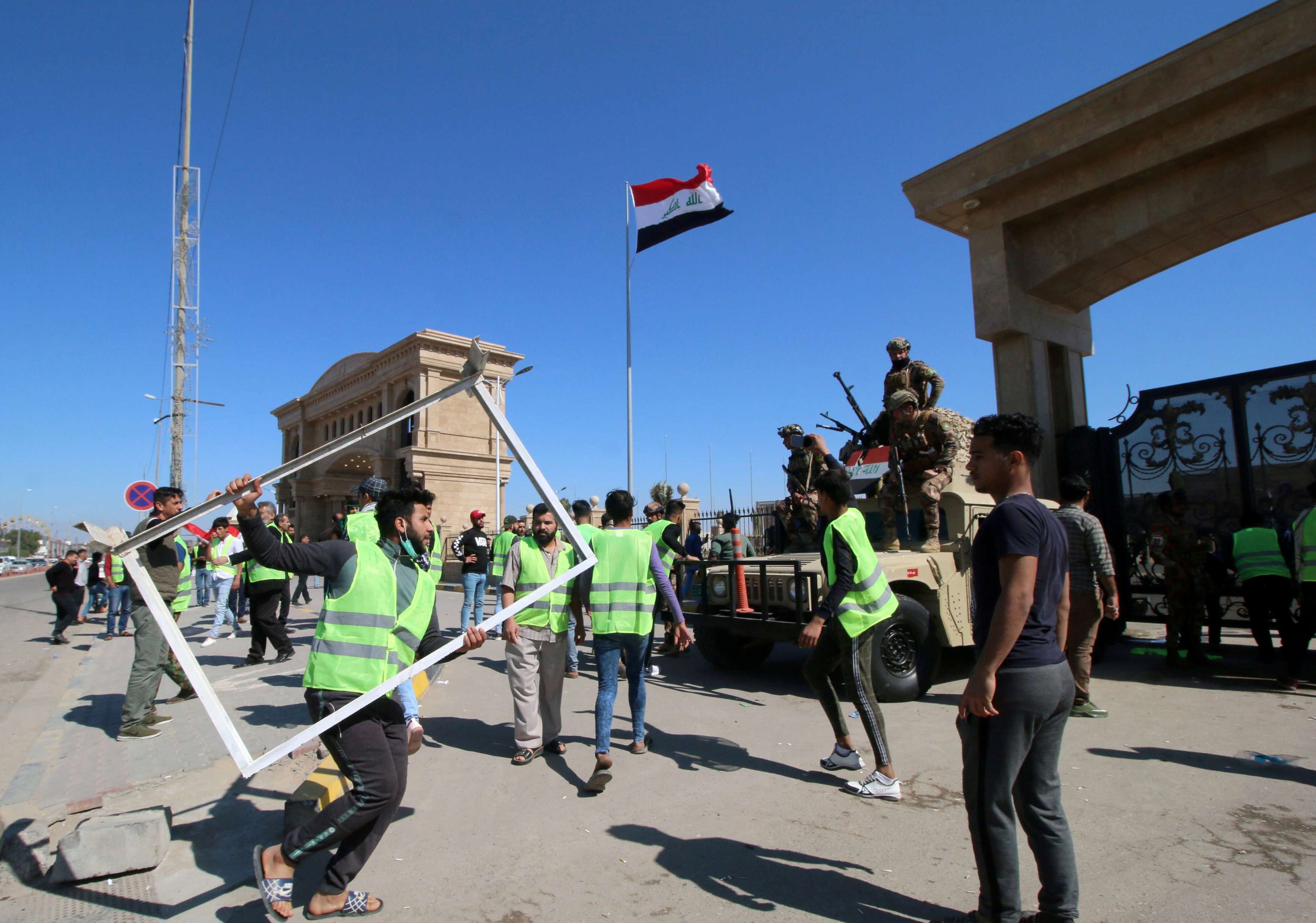In Iraq, political assassinations are back
It is expected that Iranian militias in Iraq will increase politically motivated assassinations, especially in the southern provinces, as the rejection of Iranian influence grows.
Political assassinations are becoming more and more visible and frequent in many Iraqi provinces. Most of the crimes have taken place in Basra, targeting activists known for their opposition to Iranian influence in Iraq.
“Basra is experiencing assassinations in broad daylight and in the centre of the city,” said Sheikh Mohammed al-Zidawi, adviser to the governor of Basra in charge of tribal affairs. “The latest were the assassinations of Lieutenant-Colonel Omar al-Saadoun, a member of the Basra Operations Command, and of Colonel Abdul Hussein al-Tamimi, a member of the Basra police.
“This was on top of the assassination of a school mistress and activist, in addition to wounding Sheikh Nasir al-Saaidi and killing his cousin, plus the recent horrible killing in a Basra hospital.”
Zidawi added that assassinations in northern Basra “were too numerous to count.”
In Karbala in central Iraq, doctors went on strike to protest the assassination of Dr Mohammed al-Khafaji, an anaesthesiologist in Imam Hussein Medical City, who was kidnapped and killed in Shula.
A security source in the province said two young men were killed while in a taxi in western Karbala by someone riding a motorcycle. Gunmen stormed the home of an officer in Yusufiya district in southern Baghdad province and killed his son and the son's wife.
Political assassinations have never ceased in Iraq since the arrival of occupying forces on April 9, 2003. At some point, these crimes became less frequent but they’ve never disappeared altogether.
Every day was a day of mourning somewhere. Each of Iraq’s parties of national destruction, with their armed hordes and terrorist militias, has its own death list containing hundreds, if not thousands, of names of people slated for either immediate or postponed elimination. Every day brings its lot of death to Iraqi cities, towns and even the remotest villages.
Iraqis accuse the Iran-backed militias of being behind the crimes. They also blame the security chaos created by the absence of any control on weapons in the street and by the weakness of the official security services in front of these militias.
The militias and those who support them accuse other parties, which, in most cases, have nothing to gain from the assassinations.
Zidawi said: "Ba’athist groups are behind the increase in killings after having allowed the weapons they stole from the Iraqi army’s containers to reach the streets. They sold these weapons before and after the invasion of Mosul by the Islamic State. They have a great influence, control things and threaten anyone who attempts to reveal their crimes or pursue them legally.”
Although the accusations are often quite removed from reality, for all Iraqis know that the weapons in the streets are borne only by armed militias loyal to Iran, it is still possible to discuss them.
It can be countered by pointing out that the victims of the assassinations are people who openly oppose corruption in the government and the Iranian presence. There were also border officers in Basra and Maysan who had arrested drug smugglers from Iran, who turned out to be associated with the militias of Al-Hashed al-Shaabi and working with Iran’s Islamic Revolutionary Guard Corps (IRGC).
Then there were activists and protesters whom the militias accused of being Ba’athists. However, we fail to see the interest of these Ba’athists in defending a corrupt government that they oppose in the first place.
The accusations must be levied against all parties that bear illegal weapons, against all criminal and economic mafias, against all the militias and, above all, against all political parties in the service of foreign agendas. They are the ones who created the bloodiest era in the history of Mesopotamia.
A finger could also be pointed at Wathiq al-Battat, leader of the Mukhtar Army, who has been linked to the IRGC and who has threatened to slaughter border police officers and their families and to turn their heads into ashtrays, if the police officers lay a hand on a turbaned Iranian accused of smuggling mercury into Iraq.
We’re not the only one to accuse pro-Iran militias of being behind the wave of assassinations in Iraq. The British newspaper the Daily Telegraph quoted British security officials as saying that Tehran was using assassinations to silence its critics amid what the paper had called Iranian attempts to interfere in the affairs of the new Iraqi government.
Bahira al-Sheikhly is an Iraqi writer.
This article was originally published in The Arab Weekly.







